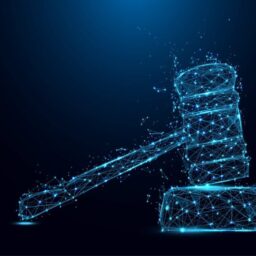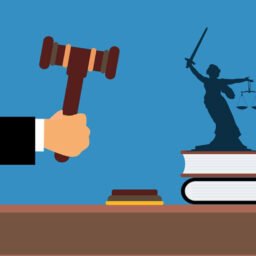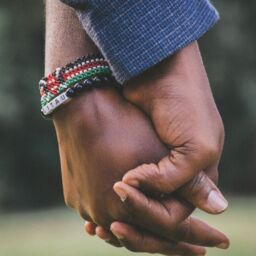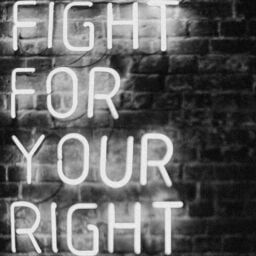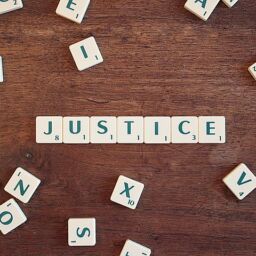“A disability doesn’t have to be a social barrier. Good etiquette begins with inclusion, not exclusion.”
– Robert M. Hensel
Disability refers to the intercourse of human beings with any health condition or disease (e.g., cerebral palsy, schizophrenia, down syndrome, and depression) and individual and environmental factors such as negative attitudes, inaccessible transportation, public buildings, limited social supports, etc[1]. The word “disabled person” is used for that person who is unable to take care of himself or herself either wholly or partly and is not able to meet the basic necessities of a standard individual or life due to any sort of deficiency, either congenital or not, in his or her normal mental or physical potential[2]. In this entire world, around 15 per cent of the population of over one billion people are approximated to have exposure to disability[3]. In today’s era, it is one of the most crucial issues because stigmatization and discrimination of people with disabilities contributed to the formation of prejudices that condemn them into unfavourable situations in comparison to people without any sort of disability. Disability is an issue of human or social rights as the rights of disabled people are subjected to numerous numbers violations which include acts of violence, abuse, defamation, and they are also disrespected because of their disability.
Article 25 – UN Convention on the Rights of Persons with Disability[4]
It states that every person with a disability has the right to avail of good health services without any discrimination.
- It guarantees equal quality and affordable services to disabled people as provided to people without disabilities.
- It also ensures any sort of prior treatment to the disabled person to avoid the spread of infection including children and senior citizens.
- It also prohibits any discrimination against them regarding health insurance and life insurance, especially which are permitted under national law.
Constitutional Provisions for Disabled People
- There should be no discrimination against any citizen of India (including the disabled) by the Government on the ground of caste, religion, race, sex, or place of birth.[5]
- Citizens (including the disabled) should not be subjugated to any disability, liability, restriction, or condition on any of the above premises in the matter of their free and fair access to shops, public restaurants, hotels, and places of public entertainment or in the use of wells, tanks, bathing ghats, roads and places of public resort maintained wholly or partly by the funds of the government or dedicated to the utilization of the general public.[6]
- Everyone should be treated equally and cannot be treated as untouchable including the disabled.[7]
- Every person has the right to his life and liberty including a disabled person.[8]
Many more similar articles or provisions which are availed to non-disabled persons are also available to a disabled person.
The Persons With Disabilities ( Equal Opportunities, Protection of Rights, and Full Participation ) Act, 1955[9]
It was enforced on 7th February 1996. It is important landmark legislation for ensuring rights for PWDs and to have their full participation in growth for the country. It provided aspects for education, employment, vocational training, job reservation, rehabilitation of a person with a disability, unemployment allowance, insurance schemes, etc. It created a barrier-free environment by counteracting any condition of abuse, mistreatment, and exploitation.
The Rights Of Persons With Disability Act, 2016[10]
It replaced PWD Act and was enforced on 15th June 2017. It is headed by the Ministry of Social Justice and Empowerment. It increases the categories of disabilities from 7 to 21. It lays emphasis on: –
- Right to Equality and Opportunity
- Right to Inherit and Own Property
- Right to Home and Family and Reproductive Rights among others
It ensures that all children with disability between the age of 6 and 18 years have the right to access free education. It is brought in accordance with the United National Convention on the Rights of Persons with Disabilities (UNCRPD). This bill ensures disabled friendly access i.e., access to wheelchairs, etc. at all public buildings, hospitals, polling stations etc. so that they don’t face any issues. If any provision of this Act is violated then he/she will be punishable with imprisonment up to six months and/or a fine of Rs.10,000.
Judgements Ensuring Rights to Disable People
- National Federation of Blind v. Union Public Service Commission,1993[11]
A writ petition was filed by the National Federation of Blind seeking permission for blind people to appear for Indian Administrative and Allied Services. They also demanded UPSC conduct exams either in Braille or in Scrub for Blind candidates. Braille is the globally approves system of writing which is used by and for blind persons and Braille characters are embossed in lines on a paper and are read by passing the fingers lightly over the manuscript[12]. The Supreme Court held the judgement in the favour of National Federation of Blind.
- Government of NCT of Delhi v. Bharat Lal Meena,2002[13]; Government. of NCT of Delhi v. Surinder Singh, 2002[14]
Both the cases are similar as both of them applied for the post of Physical Education Teacher knowing the fact that they have disabilities. So, the High court of Delhi held that disabled people can be appointed as physical education teachers after qualifying for the prescribed examination and undergoing the training session
CONCLUSION
Disability comes with no prior warnings. It is quite unpredictable. We can just stop it from spreading and as we have seen above, Government is working hard for granting rights to disable people. Some people are born with a disability, it doesn’t mean that they are unequal. The Government has taken many steps but it is lacking in some of the aspects as it doesn’t specify any financial estimate resources to meet the needs of disabled people. Although several schemes act as a relief yet Government needs to bring more schemes related to education and employment opportunities for disabled people.
Author(s) Name: Aastha Bhageria (Vivekananda Institute of Professional Studies, Delhi)
References:
[1] World Health Organization, <https://www.who.int/news-room/fact-sheets/detail/disability-and-health>
[2]Declaration on the Rights of Disabled Persons, <https://www.ohchr.org/en/professionalinterest/pages/rightsofdisabledpersons.aspx>
[3] United Nation, <https://www.un.org/development/desa/disabilities/resources/factsheet-on-persons-with-disabilities.html>
[4] Convention on the Rights of Persons with Disabilities (CRPD) – Article 25, <https://www.un.org/development/desa/disabilities/convention-on-the-rights-of-persons-with-disabilities/article-25-health.html>
[5]The Constitution of India, Article 15(1)
[6]The Constitution of India, Article 15(2)
[7]The Constitution of India, Article 17
[8] The Constitution of India, Article 21
[9] PWD Act, 1955, <https://thenationaltrust.gov.in/upload/uploadfiles/files/Persons%20with%20Disability%20Act%201995.pdf>
[10] The Rights of Persons With Disability Act, 2016, <hvttps://legislative.gov.in/sites/default/files/A2016-49_1.pdf>
[11] AIR 1993 SC 1916
[12] Braille, Britannica,<https://www.britannica.com/topic/Braille-writing-system>
[13] CWP No. 2490 of 2002
[14] CWP No. 2461 of 2002



